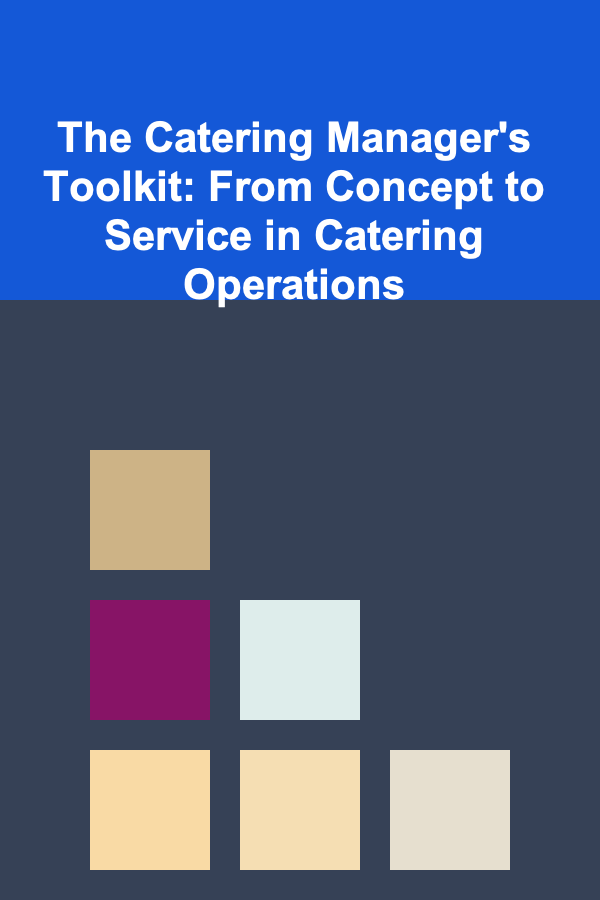
How to Create a Grant Reporting Checklist for Healthcare Grants
ebook include PDF & Audio bundle (Micro Guide)
$12.99$5.99
Limited Time Offer! Order within the next:

Healthcare grants are vital funding sources that enable healthcare organizations to enhance their services, improve patient outcomes, and implement innovative health solutions. However, to ensure continued support, these grants often come with strict reporting requirements. Properly reporting grant progress not only helps maintain funding but also ensures accountability, transparency, and compliance.
Creating a grant reporting checklist for healthcare grants is an essential step in streamlining the reporting process, ensuring all necessary information is gathered, and avoiding missing critical details. This guide will walk you through the steps to create an actionable, detailed, and practical grant reporting checklist for healthcare grants, from the initial submission to post-grant evaluations.
Understand the Grant Requirements
The first step in creating a grant reporting checklist is to fully understand the reporting requirements of the grant. Healthcare grants vary depending on the funding agency, the scope of the project, and the type of funding. Each grant may come with its own set of reporting guidelines, deadlines, and metrics that need to be tracked.
Key Elements to Consider:
- Grant Reporting Frequency: Some grants require monthly, quarterly, or annual reporting. It's essential to determine the exact frequency so that reporting intervals are maintained throughout the grant lifecycle.
- Types of Reports: Grants often ask for progress reports, financial reports, or final outcome reports. Knowing which types of reports are required will help in creating a comprehensive checklist.
- Metrics and Deliverables: Identify the specific goals, deliverables, and key performance indicators (KPIs) defined in the grant. These might include patient care improvements, data on the implementation of healthcare programs, or financial accountability.
Actionable Tip:
- Review the Grant Agreement: Carefully read through the grant agreement and highlight key reporting dates and deliverables. Many grants include specific instructions on how to report, such as using certain formats or submitting data through an online portal. Include these details in your checklist.
Organize the Necessary Data
Grant reports require a wide range of data that should be organized and easily accessible. The accuracy and thoroughness of this data will directly affect the quality of your report. Begin by identifying the key data points that you will need to report on.
Key Data Categories:
-
Financial Data: Include detailed records of expenses related to the grant, such as staff salaries, operational costs, supplies, and any other expenditures covered by the grant. A good financial report should also highlight any variances between the projected and actual spending.
- Actionable Tip: Use accounting software or spreadsheets to track expenses in real time. This will make it easier to generate accurate financial data when it's time to report.
-
Programmatic Data: Document the activities and services funded by the grant. This may include patient care statistics, program implementation details, outreach efforts, or any services rendered.
- Actionable Tip: Maintain a log of activities, services provided, and staff involved. Use project management tools or shared documents to track the progress and impact of the funded activities.
-
Impact Metrics: Quantify the impact of the grant, such as the number of patients served, health outcomes, or improvements in healthcare infrastructure. These metrics may be required for both interim and final reports.
- Actionable Tip: Create a dashboard to track impact metrics in real time. This helps you quickly pull accurate data when it's time for reporting.
Actionable Tip:
- Create a Data Collection Plan: Develop a clear plan outlining who is responsible for collecting data, the tools they will use, and the frequency of data collection. This plan ensures that no critical data is left out of your reporting process.
Set Clear Reporting Deadlines
Deadlines for submitting grant reports are non-negotiable and crucial to the success of your grant management process. Missing deadlines can jeopardize future funding and damage your relationship with the funding agency.
Tips for Managing Deadlines:
- Use a Calendar System: Set up a project calendar with all critical reporting deadlines, both internal (drafts, reviews, and approvals) and external (submission dates).
- Set Internal Deadlines: Establish internal deadlines well before the official reporting due dates. This gives you ample time for review, adjustments, and troubleshooting if needed.
- Track Milestones: Alongside reporting deadlines, track milestones in the grant implementation process, such as project completion stages, budget reviews, or the achievement of key deliverables.
Actionable Tip:
- Automate Reminders: Set up automated reminders in project management software or through calendar apps to remind you of upcoming deadlines. This ensures no report is ever late and that all necessary tasks are completed on time.
Create a Reporting Template
A standardized reporting template streamlines the process and ensures that no necessary information is overlooked. It serves as a framework for consistently gathering and reporting data, ensuring compliance with grant requirements, and meeting the expectations of the funding agency.
Components of a Grant Reporting Template:
- Executive Summary: A brief overview of the project, its goals, objectives, and progress.
- Financial Report: A detailed breakdown of grant expenses, including justification for spending.
- Programmatic Report: A summary of the activities conducted, deliverables achieved, and any variations from the planned activities.
- Outcome/Impact Report: Data on the outcomes achieved, such as patient care improvements, service delivery, or public health benefits.
- Challenges and Solutions: Any obstacles encountered during the grant period and how they were addressed.
- Future Plans: Any next steps or upcoming milestones that need to be planned for.
Actionable Tip:
- Create Template Variations: Depending on the grant's requirements, you may need different templates for progress reports, final reports, and financial reports. Customize templates for different types of reporting but keep the format and language consistent.
Monitor and Track Progress Throughout the Grant Period
Monitoring the progress of your grant-funded project is vital to ensure that everything is on track for timely and accurate reporting. Regular monitoring can help identify potential issues early, allowing you to address them before the final report.
Monitoring Techniques:
- Project Management Tools : Use tools like Trello, Asana, or Monday.com to track ongoing tasks, milestones, and deadlines related to your grant-funded activities.
- Regular Team Check-ins: Set up regular check-ins with your team to review progress, update data, and discuss any challenges faced in project execution. These meetings can provide critical insights into the status of your activities and data accuracy.
Actionable Tip:
- Conduct Monthly Reviews: Hold monthly meetings to review all aspects of your grant-funded program, including budget adherence, milestones achieved, and potential issues that might affect reporting.
Prepare for Post-Grant Evaluation
Once the grant period ends, you'll need to prepare for a post-grant evaluation. This includes the final report, which may require a deeper analysis of the outcomes and a thorough review of how the grant was spent.
Key Elements to Include:
- Summary of Achievements: Clearly demonstrate how the grant contributed to achieving the stated objectives and goals.
- Lessons Learned: Identify key lessons learned during the grant period and how those lessons will influence future grant applications or healthcare projects.
- Sustainability: Explain how the results of the grant will be sustained after the funding ends, and how the healthcare organization plans to continue the work.
Actionable Tip:
- Prepare in Advance: Don't wait until the final reporting deadline to start preparing for the post-grant evaluation. Begin gathering final metrics and data at least one to two months before the grant ends, so you have time for reflection and adjustments if necessary.
Conclusion
Creating a comprehensive and actionable grant reporting checklist for healthcare grants requires careful planning, organization, and attention to detail. By following the steps outlined in this guide, you can streamline the reporting process, ensure all required data is collected and reported on time, and enhance your chances of securing future funding. A well-executed grant reporting process demonstrates your organization's accountability, transparency, and commitment to improving healthcare outcomes.
Reading More From Our Other Websites
- [Mindful Eating Tip 101] Building Connection: How Mindful Eating Community Groups Transform Health and Relationships
- [Organization Tip 101] How to Create a Digital Recipe Book for Easy Access
- [Home Lighting 101] How to Choose the Right Bulbs for Your Home Lighting Needs
- [Home Renovating 101] How to Manage Your Home Renovation Budget Efficiently
- [Home Security 101] How to Create a Home Security System Without Monthly Fees
- [Beachcombing Tip 101] How to Identify and Preserve Rare Shells: A Collector's Guide
- [Small Business 101] How the Benefits of Small Business Ownership Lead to Personal and Financial Freedom
- [Organization Tip 101] How to Organize Music and Entertainment Options in Your Car
- [Home Staging 101] How to Stage a Home with Minimalistic Decor for Maximum Impact
- [Home Pet Care 101] How to Keep Your Pet Safe from Common Household Hazards

How to Steam Shellfish: A Comprehensive Guide
Read More
The Catering Manager's Toolkit: From Concept to Service in Catering Operations
Read More
The Industrial Engineer's Playbook: Strategies for Improving Productivity and Quality
Read More
How to Navigate the Bustling Markets of Marrakech
Read More
10 Tips for Digital Wellbeing: A Yearly Tech Detox Checklist
Read More
How to Choose the Right Crystal for Your Zodiac Sign
Read MoreOther Products

How to Steam Shellfish: A Comprehensive Guide
Read More
The Catering Manager's Toolkit: From Concept to Service in Catering Operations
Read More
The Industrial Engineer's Playbook: Strategies for Improving Productivity and Quality
Read More
How to Navigate the Bustling Markets of Marrakech
Read More
10 Tips for Digital Wellbeing: A Yearly Tech Detox Checklist
Read More